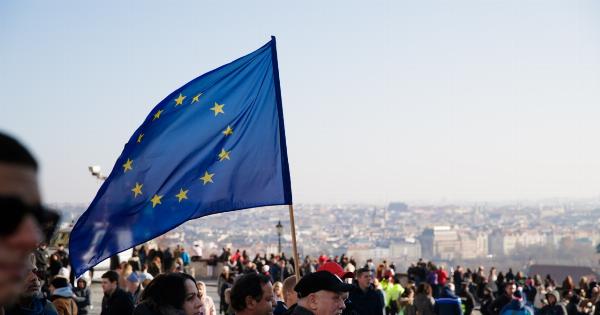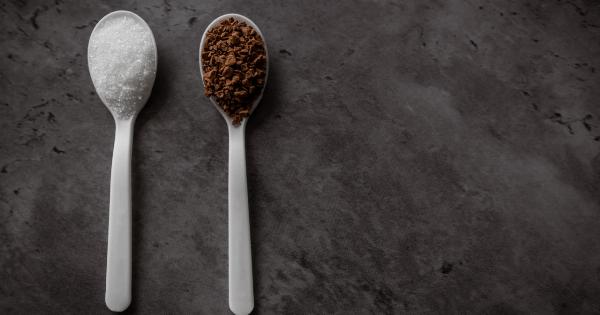Coffee has long been a beloved beverage for many around the world. Its rich aroma and robust flavor make it an essential part of the daily routine for millions of people.
However, recent developments in the European Union (EU) have put a damper on the caffeine-fueled love affair.
The EU’s Latest Directive
The EU directive, which became effective on July 1st, 2021, aims to regulate and limit caffeine consumption across member states.
The directive imposes new restrictions on the amount of caffeine permitted in various food and beverage products, including coffee.
Why Limit Caffeine Consumption?
The EU directive limiting caffeine consumption is driven by concerns regarding the potential adverse effects of excessive caffeine intake on individuals’ health.
Caffeine, a natural stimulant found in coffee, tea, and other sources, can have both positive and negative impacts on the body.
While moderate caffeine consumption has been associated with increased alertness, improved cognitive function, and even a reduced risk of certain diseases, excessive intake can lead to various health issues.
These include insomnia, anxiety, digestive problems, increased heart rate and blood pressure, and dependency.
Additionally, the EU believes that limiting caffeine consumption can help protect vulnerable populations, such as children and pregnant women, who may be more susceptible to the negative effects of caffeine.
New Caffeine Limits
The EU directive imposes specific caffeine limits on various food and beverage products. For coffee, the maximum caffeine content per serving should not exceed 80 milligrams.
This means that many popular coffee drinks, such as espresso shots or large cups of brewed coffee, may surpass the permitted limit, potentially causing issues for coffee lovers.
It’s important to note that these restrictions don’t only apply to coffee. Other caffeinated products, including energy drinks, teas, soft drinks, and chocolate, are also affected by the directive.
The aim is to provide consumers with clear information about the caffeine content of these products and allow them to make informed choices about their consumption.
Impacts on Coffee Industry
The EU’s directive limiting caffeine consumption has raised concerns among coffee industry stakeholders.
For coffee shops and cafes, adapting to the new restrictions might involve adjusting their recipes or finding alternative ways to attract customers who may be looking for more caffeine content in their beverages.
Small businesses that rely heavily on coffee sales may also face financial implications due to the potential decrease in demand for high-caffeine beverages.
Meanwhile, coffee bean suppliers and manufacturers may need to reassess their offerings to meet the new regulations and maintain compliance.
Consumer Reactions
For passionate coffee lovers, the news of limited caffeine consumption may come as a disappointment. Many rely on the energy boost that coffee provides to jumpstart their day or keep them going during long hours of work or studying.
However, some welcome the directive as a necessary measure to protect public health and promote responsible caffeine consumption.
These individuals believe that it will encourage a more balanced approach to coffee consumption and prompt consumers to explore non-caffeinated alternatives or consume coffee in moderation.
Alternatives and Solutions
The EU directive does not seek to ban coffee or other caffeinated products altogether. It aims to strike a balance between enjoying these beverages and maintaining a healthy lifestyle.
Coffee lovers can still enjoy their favorite brew but need to be mindful of their caffeine intake and choose lower-caffeine options if desired.
Cafes and coffee shops can adapt by offering a wider selection of decaffeinated or low-caffeine alternatives. This way, customers who are trying to cut down on caffeine can still enjoy the social aspects and indulgence of a coffee shop experience.
Education and awareness are also crucial in helping consumers make informed choices about their caffeine consumption.
The EU’s directive prompts food and beverage manufacturers to label their products clearly with caffeine content information, allowing individuals to monitor their intake more effectively.
Conclusion
The EU’s directive limiting caffeine consumption serves as a reminder that while coffee is undoubtedly a beloved beverage, moderation is key.
The new restrictions aim to protect consumers, especially more vulnerable populations, from the potential health risks associated with excessive caffeine intake.
Coffee lovers need not despair, as there are still ways to enjoy their favorite brews while staying within the limits.
Adapting to the new caffeine restrictions requires a shift in mindset and the embrace of alternative options, whether it be decaf or lower-caffeine indulgences.






























